Reserved seats: Justices Khan, Afghan of SC say relief granted to PTI will be self-created
4 min readThe relief granted to PTI would be self-created, Justices Amin Uddin Khan and Naeem Akhtar Afghan stated in their dissenting note on the reserved seats case.
“And has been carved out relief by the majority, as none has claimed this relief in court proceedings,” they said in the 29-page dissenting note issued on Saturday.
In a majority verdict last month, the Supreme Court declared Imran Khan’s PTI eligible for seats reserved for women and minorities in the National and provincial assemblies.
The judgement explained that 39 out of the 80 MNAs, shown by the ECP as PTI candidates, belonged to the party. The remaining 41 independents would have to file duly signed and notarised statements before the ECP within 15 days, explaining that they contested the general elections as candidates of a particular political party.
The majority verdict was given by Justice Mansoor Ali Shah, Justice Shahid Waheed, Justice Ayesha Malik, Justice Irfan Saadat, Justice Athar Minallah, Justice Muneeb Akhtar, Justice Hasan Azhar Rizvi, and Justice Muhammad Ali Mazhar.
Justices Aminuddin Khan and Naeem Akhtar Afghan had dismissed the appeals while Justice Yahya Afridi wrote a separate note.
They gave 16 reasons to in their detailed noted, starting with that the PTI was not before the Supreme Court nor before the high court nor even before the ECP.
They wrote that the joining of 80 independent returned candidates to Sunni Ittehad Council was never disputed by anyone.
“The said 39 plus 41 persons as mentioned in the majority’s short order did not come before this Court nor were they heard. The majority short order decides about their rights or luck thereof without their consent or even hearing them. Their joining of SIC has been undone without such prayer of anyone before this Court, or before the High Court,” said the third point.
They added that the majority order dismissed appeals filed by the SIC, did not provide the party relief, and snatched the independent members who joined the religiopolitical party from it without hearing them.
“Unless Articles 51, 106 and 63 of the Constitution are suspended and in their place new articles in consonance with the relief granted through the majority order are inserted in the Constitution, the relief which has been granted to the PTI cannot be granted,” Justices Khan and Afghan said.
They added that Article 175 (Establishment and Jurisdiction of Courts) and the constitutional limits of jurisdiction under Article 185 (Appellate Jurisdiction of Supreme Court) of the Constitution have been ignored.
All substantive as well as procedural law with regard to parties to lis have been ignored, it said and added that the relief given to the PTI would be self-created.
“Not only SIC has not been granted relief claimed by it but all those who have joined it have been taken off and for the rest of the tenure of the National as well as provincial assemblies SIC has been kicked out from the assemblies,” it said.
The two apex court judges wondered how the notification of returned candidates can be held valid before the date it was quashed.
“The majority judgment virtually declares that said 80 persons are not honest and ameen in accordance with Article 62(1)(f) of the Constitution,” the note said and maintained that all the returned candidates for the reserved seats of other parties who have been notified were not issued notices and provided an opportunity of hearing.
According to Justices Khan and Afghan, the majority’s short order in effect created a new parliamentary party in the National Assembly and three Provincial Assemblies and since this related to the pre-election process, it is clearly and “unequivocally not an issue” before the Court. “In the process of the general elections all events are scheduled and time-bound and the same cannot be reversed.”
“It is clear that the superstructure created by the majority’s short order, does not in any way come within the ambit of the jurisdiction vested in this Court or in the Constitution,” the note said.
Also, read this
Form 47 case will be next after SC’s decision on reserved seats, says PML-N’s Hiraj
NA committee passes amendments to Election Act, minister warns against rewriting constitution
PPP follows PML-N, files review petition against reserved seats case ruling
Unless Section 104 of the Election Act as well as the relevant rules were also suspended and new sections/rules were substituted, they said the majority order cannot be passed.
They wrote that the majority judgment “ignores” all rules of procedure, substantive provisions of law and the Constitution.
“We do not have the courage to go to such an extent to give relief to a party who is not before the Court or who did not join the proceedings and pray for such relief,” they said while mentioning the need to travel beyond the jurisdiction conferred by Articles 51, 106, and 63 of the Constitution to provide relief to the PTI.
For the latest news, follow us on Twitter @Aaj_Urdu. We are also on Facebook, Instagram and YouTube.
















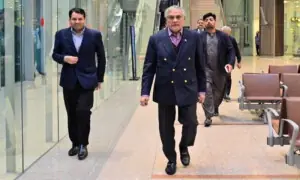
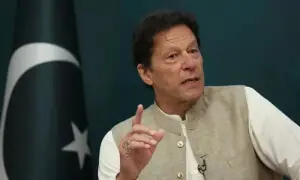
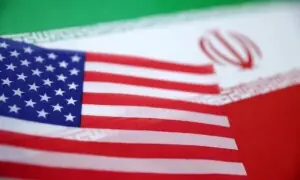

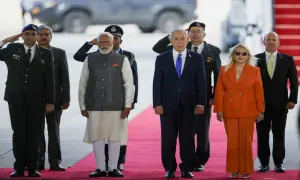

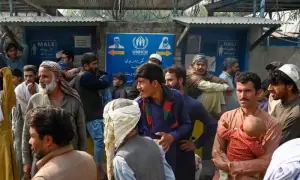
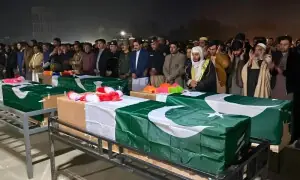
Comments are closed on this story.